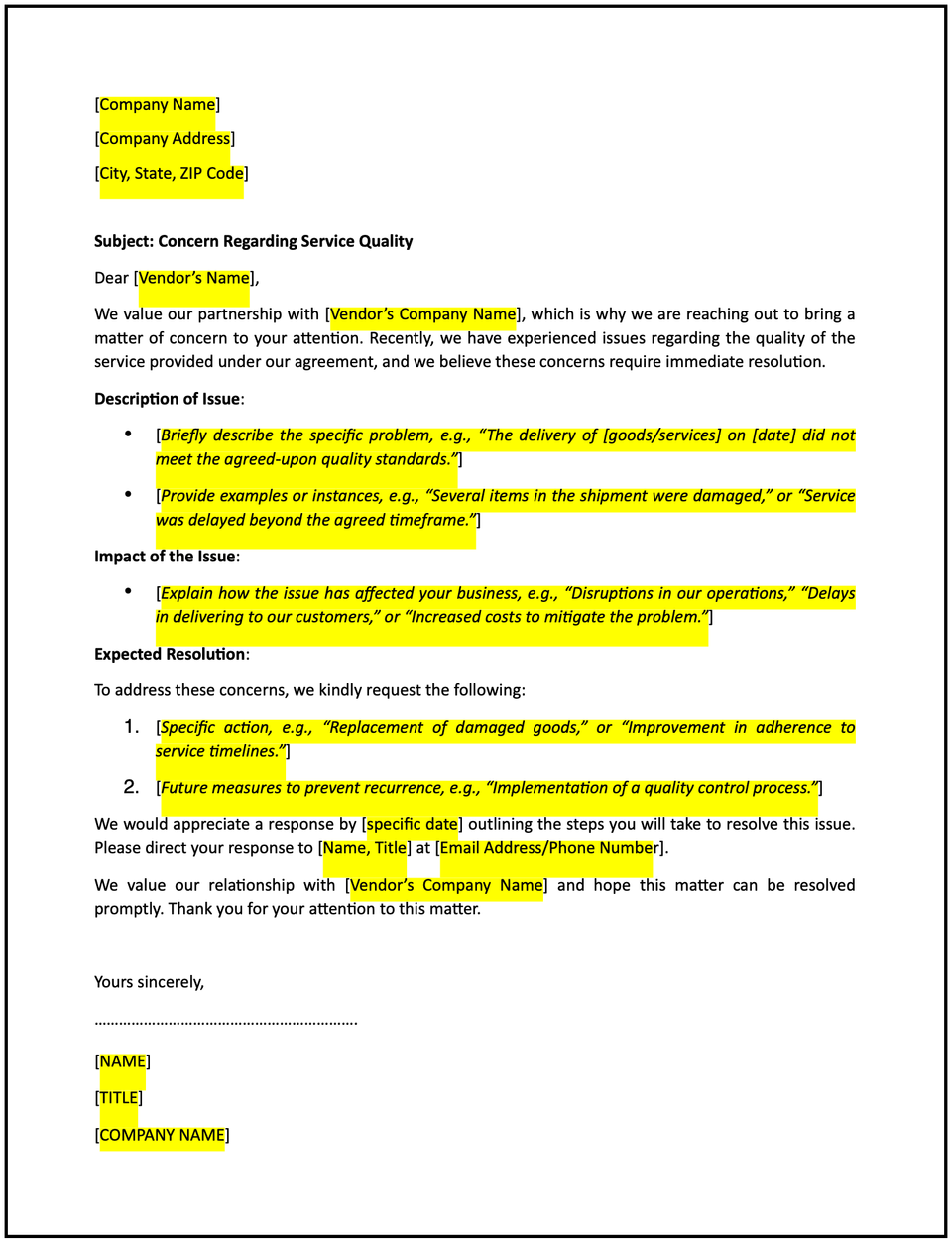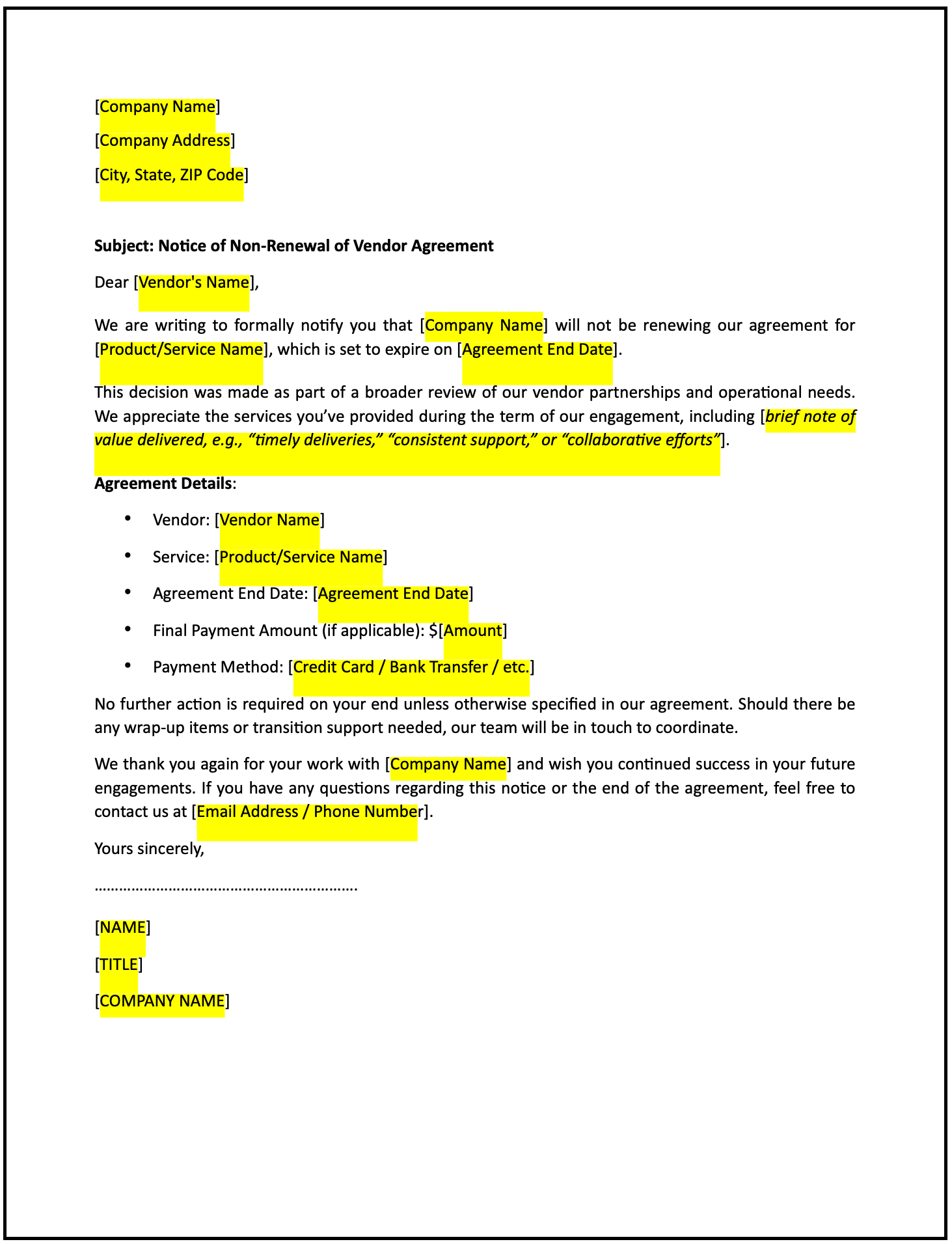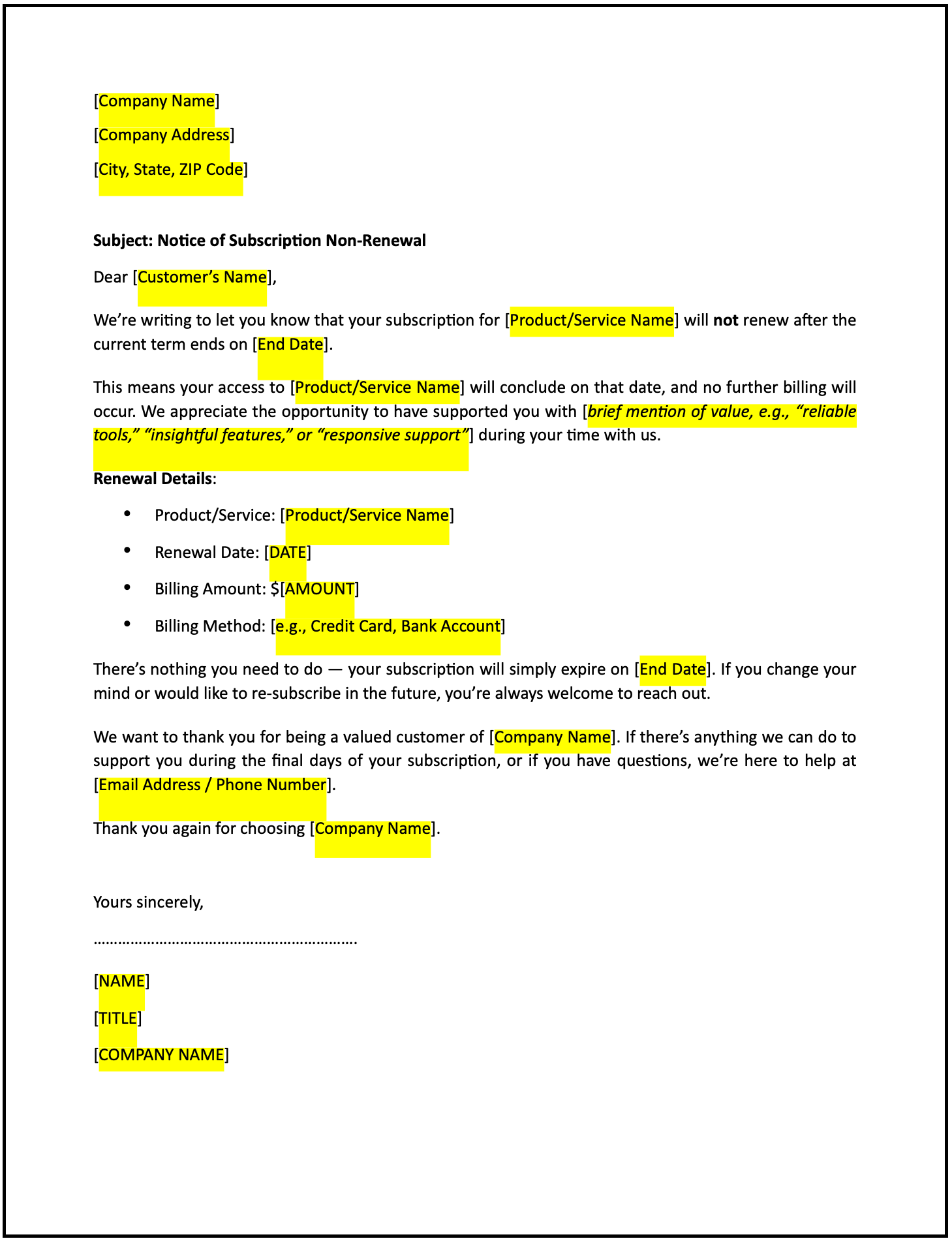Letter of complaint about vendor service quality: Free template

Letter of complaint about vendor service quality
A letter of complaint about vendor service quality is a formal communication used to address concerns regarding the performance, reliability, or quality of services provided by a vendor. This letter highlights specific issues, requests corrective action, and seeks to maintain a professional relationship while resolving the problem.
How to use this letter of complaint about vendor service quality
- Open with an introduction: Address the vendor respectfully and reference the agreement, contract, or specific service in question.
- State the purpose: Clearly communicate that the purpose of the letter is to raise concerns about the service quality.
- Provide specific details: Outline the issues encountered, including dates, descriptions, and any relevant examples or evidence.
- Reference expectations: Mention the agreed-upon standards, contract terms, or service levels that were not met.
- Emphasize impact: Briefly explain how the service quality issues have affected your business operations or goals.
- Request corrective action: Specify the resolution or improvement actions you are seeking, such as rectifications, adjustments, or a meeting to discuss further.
- Maintain a professional tone: Ensure the letter is respectful, focused on solutions, and aimed at maintaining the business relationship.
- Provide contact information: Include details for the vendor to reach out for clarifications or to discuss the matter further.
Benefits of using a letter of complaint about vendor service quality
This letter ensures a structured and professional way to address service quality concerns while fostering accountability and collaboration. Here’s how it helps:
- Promotes accountability: Addressing issues directly encourages vendors to meet agreed standards.
- Reflects professionalism: A well-crafted letter demonstrates respect and a commitment to finding solutions.
- Encourages improvement: Highlighting specific issues provides vendors with clear areas for action.
- Builds trust: Proactively addressing problems reinforces a transparent and honest relationship.
- Supports resolution: Documenting concerns and solutions ensures clarity and alignment.
Tips for writing an effective letter of complaint about vendor service quality
- Be specific: Clearly describe the service issues, referencing examples and agreed standards.
- Use professional language: Maintain a respectful and constructive tone to foster collaboration.
- Provide context: Briefly explain how the issues have impacted your business or operations.
- Highlight mutual benefits: Emphasize how resolving the issues supports both parties’ goals.
- Include actionable steps: Share instructions for addressing the issues, such as scheduling a meeting or providing adjustments.
- Keep it concise: Focus on the essential points while ensuring the tone is professional and engaging.
Frequently asked questions (FAQs)
Q: What details should I include in this letter?
A: Include references to the agreement or contract, specific service issues, and the resolution you are seeking.
Q: Should I personalize the letter?
A: Yes, addressing the vendor by name and referencing specific details demonstrates attentiveness and professionalism.
Q: Who typically sends this letter?
A: Procurement managers, operations teams, or business owners typically send this letter.
Q: How formal should this letter be?
A: The tone should be professional, respectful, and focused on fostering collaboration and resolution.
Q: When should this letter be sent?
A: Send the letter promptly after identifying the issues to ensure timely resolution.
Q: Can this letter request compensation?
A: Yes, if applicable, requesting adjustments or credits can be included respectfully.
Q: Is acknowledgment from the recipient required?
A: While not mandatory, requesting acknowledgment ensures the vendor is addressing your concerns.
This article contains general legal information and does not contain legal advice. Cobrief is not a law firm or a substitute for an attorney or law firm. The law is complex and changes often. For legal advice, please ask a lawyer.


